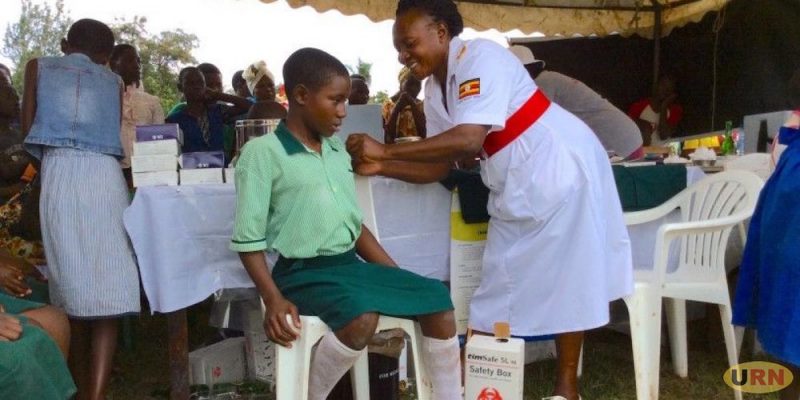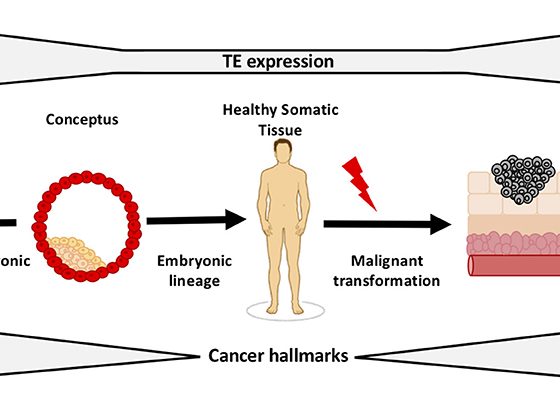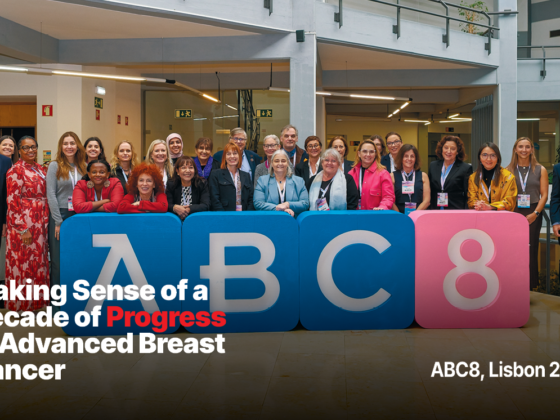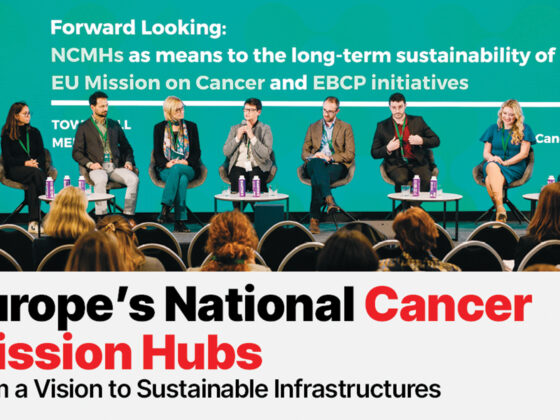“The most sustainable way is for people to understand that when my girl reaches 10 years, I just take her for the HPV vaccine. That’s the sustainable way where all of us take responsibility. We either hold our daughters’ hands or send them with a clear message: ‘Today is your 10th birthday, and on your 11th birthday, your goal should be to have taken an HPV vaccine.'”
When Sylvia Nakami took on the post of Executive Director of the Rays of Hope Hospice in the eastern Ugandan city of Jinja, she never expected to be pronouncing on how best to implement HPV vaccination programmes for young girls. But as Cancerworld reported in September 2023, that all changed when the Hospice took a look at its data and realised that almost half of the women in its care were dying from a highly preventable disease.
Our earlier story focused on the mobile screening service that the Hospice recently set up to serve the dispersed rural community of 1.5 million that has been relying on its palliative care services since 2005. That’s a programme which the Hospice hopes will mean many women who were destined to die prematurely will instead go on to live healthy and productive lives. With around one in every nine women screened by the Rays of Hope mobile clinic testing positive for precancerous cells, that’s a lot of lives potentially saved. But Nakami’s sights are also set on an even bigger prize – strengthening the national vaccination effort to prevent upcoming generations from contracting the cancer-causing virus in the first place.
Unlike screening services, which remain very patchy across the country, Uganda’s HPV vaccination programme is quite well-organised, relying as it does on being delivered in school settings, which have high attendance rates among the target population of 10- to 14-year-old girls. Current estimates indicate that 74% of all 10-year-olds have received both first and second doses of the vaccine. That’s not a bad start, though it’s still 16 percentage points short of the target of 90% set by the World Health Organization as the level required to ensure the virus can be almost entirely eliminated from circulation. But Uganda, which launched its HPV vaccination programme back in 2015, is also struggling to catch up with the backlog of 12, 13, and 14-year-olds who missed out on their vaccinations as a result of the Covid pandemic, which saw schools in the country remain closed for almost two years.
“It’s about empowering communities to take charge of their own health and well-being”
Nakami believes that creating a demand within families and communities by spreading information about the link between the HPV virus and cervical cancer, and about how women and girls can get protected, will be essential to reaching the WHO recommended rates for vaccination. To that end, the Hospice is collaborating with the District Health Office and health centres in Buikwe district, in a pilot aimed at raising awareness amongst its population of around half a million. “It’s about empowering communities to take charge of their own health and well-being,” she says.
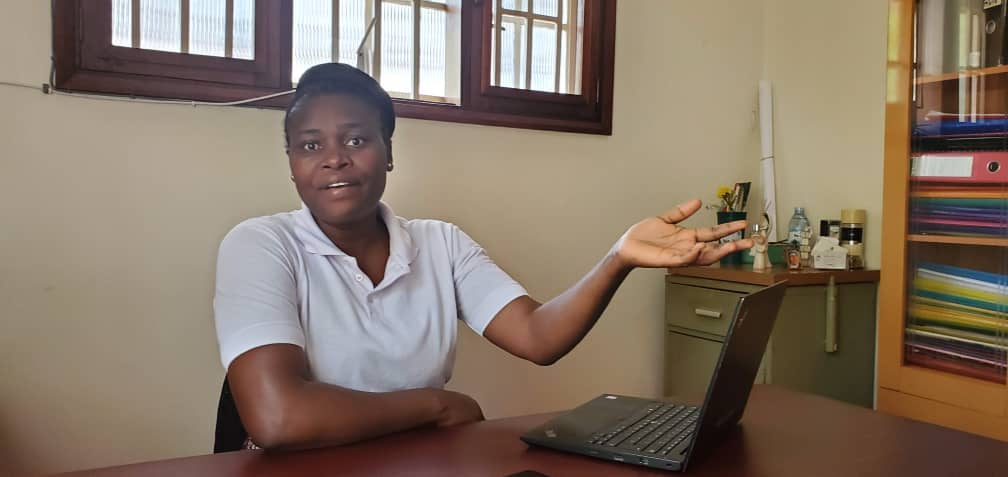
Photo credit: Esther Nakkazi ©
Michael Baganizi, programme manager at Uganda’s National Expanded Program on Immunization (UNEPI), agrees that consolidating the HPV vaccination scheme still faces a number of challenges. While the practice of childhood immunisations is well established in the country, the service has primarily been geared to infants – vaccinating older children outside of the routine schedule is relatively new, he says. The concept of administering two doses is also new, he adds, and is still not widely understood.
Baganizi acknowledges the need for more attention to be paid to spreading information and awareness about cervical cancer, but says lack of resources are a problem. “Currently we ride on integrated messaging during ‘Child Days’ [national outreach days held in October and April aimed at promoting children’s health and new vaccine introduction]. There is limited HPV and cervical cancer specific communication due to limited funding.”
Systems for monitoring who has received how many doses and following up children who have fallen through the net are also lacking, says Baganizi. There is a tracking system, but it records only the first dose, using the WHO/UNICEF Estimates of National Immunization Coverage (WUENIC) system. This means there is currently no reliable way to ensure that children receive both doses, he points out, with healthcare providers relying on the child’s memory rather than keeping proper records. He would like to see HPV vaccinations questions included in the next Uganda Demographic Health Survey, “to get a real picture on the ground.”
He would also like to see schools – particularly private schools, where the government has less control – play a more proactive role in registering children to demand from their local health facilities both the HPV and the tetanus–diphtheria (Td) vaccination, and also implement tracking systems to streamline follow-up and verification processes.
More generally, he would like to see policies directed at strengthening all school health programmes and fostering collaboration between schools, communities and adolescent health services. But there’s precious little funding available to support that work. The Buikwe pilot programme that the Rays of Hope Hospice is running with the District Health Offices and local health centres aims to help bridge that gap.
“When they reach schools, some of the teachers lack knowledge about the vaccine,” says Nakami. “They close their gates, saying, ‘We won’t administer something to our children that we don’t understand.’” Having conversations that could build understanding and trust can be difficult for staff at local health centres, she explains, because they themselves often have only a very sketchy grasp of the facts.
“District Health Officers and health centres have really taken an interest. But my feeling is very few really knew much about cervical cancer”
Margrethe Juncker, a volunteer doctor and programme advisor at Rays of Hope, draws a parallel with the early information campaigns done around HIV/AIDS. “Back then, nobody knew anything about what it is, but what you can do is get the information out there. It has been very interesting; we started to work with the DHO [District Health Officers’] office and health centres, and they have really taken an interest. But my feeling is very few really knew much about cervical cancer. It was not given attention until they started understanding what kind of disease it is and how it can be prevented.”
As a palliative care provider, Rays of Hope wield a compelling instrument, says Nakami: they can vividly illustrate to the public the ultimate outcome of the journey, and they are able to bring patients and survivors to talk about what it is like to have cervical cancer.
“Our advantage is that we can show the bigger picture. We can bring a woman who has gone through chemotherapy, radiotherapy, surgery, and her story will show that it’s not something that you would love for your girl,” says Nakami. In addition to the pilot programme aimed specifically at boosting the vaccination effort in Buikwe, Rays of Hope also use their mobile screening service visits – which cover a much larger area – to spread information and encourage mothers to ensure their girls get protected.
Though focused primarily on adults, the Rays of Hope screening visit to Nansololo, reported previously by Cancerworld, was also attended by a handful of young teenage girls. One had left school early and cycled 30 minutes for the express purpose of finding out more about the vaccine. Others – including Ephrance and Jackline – were from the local school, and had come along at the prompting of the school matron. Ephrance, it turns out, is one of those who has fallen through the net – she’d been given her first shot of the vaccine while attending the Walakuba West charity-funded boarding school in Jinja, but was now at the local school in Nansololo, around 90 km away, and was looking for advice on how to get her follow-up jab.
Jackline by contrast had been warned against the vaccine: “My mother told me that if they bring it to school I should not accept it,” she said. Thanks to what she learned at the Rays of Hope screening visit, which always starts with an information session, Jackline now has the chance to make her own mind up.
This reporting was supported by the International Women’s Media Foundation’s Global Health Reporting Initiative: Vaccines and Immunization in Africa, in partnership with Sabin Vaccine Institute.
This is the second part of a two-part report on cervical cancer screening and HPV vaccination in Uganda. The first report focused on the work of the Rays of Hope Hospice Jinja’s mobile screening clinic.
The opening illustration shows a child receiving the HPV vaccination at school, and is republished courtesy of the Uganda Radio Network ©URN.

